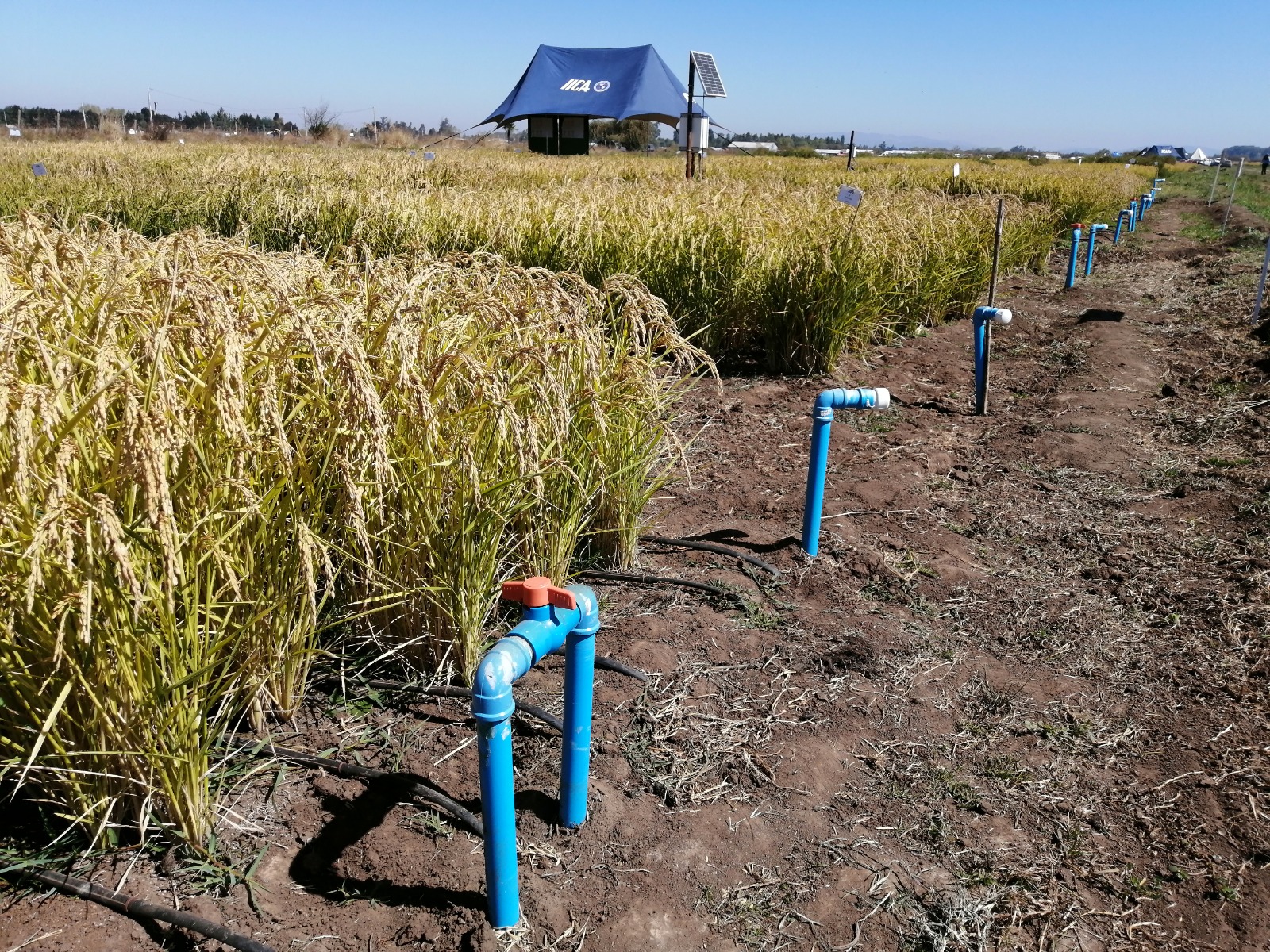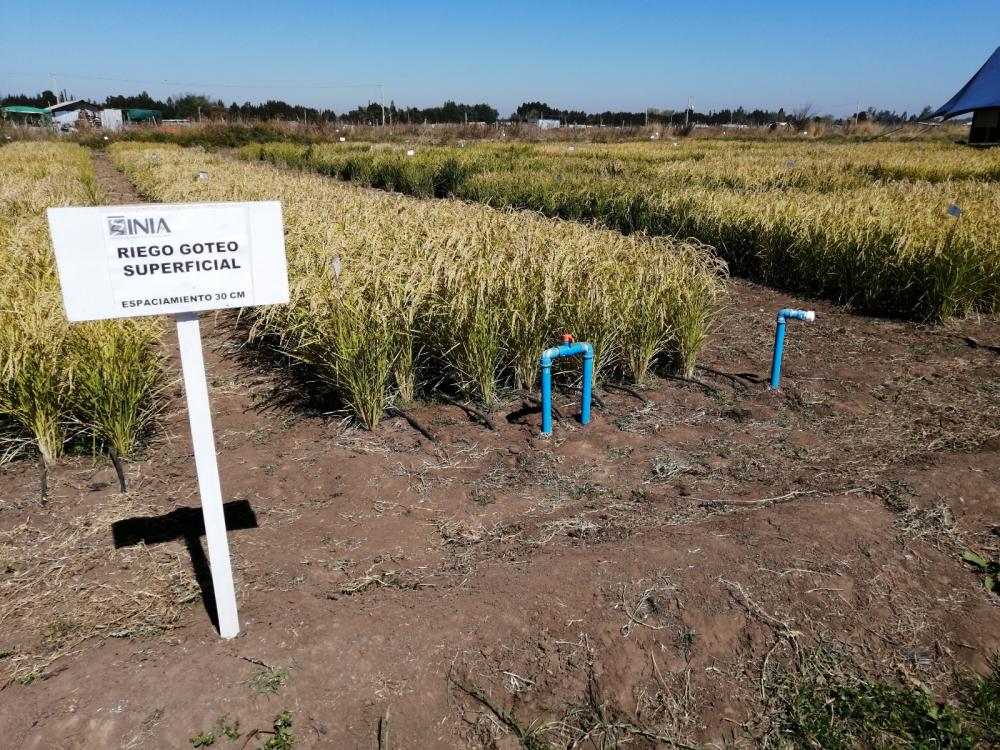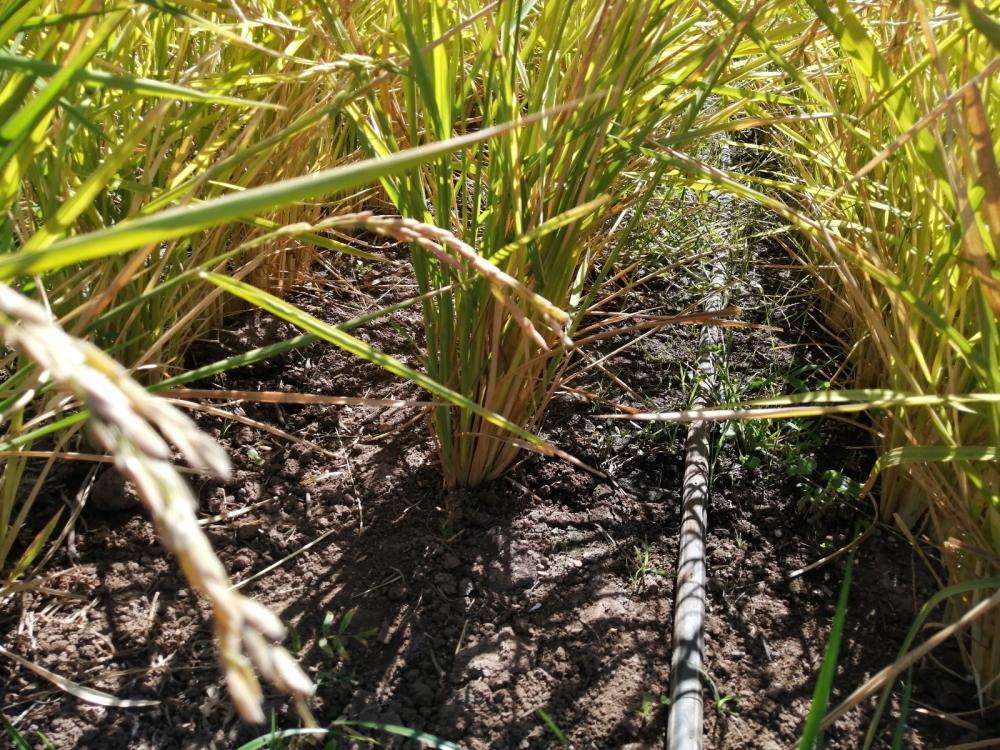The INIA and IICA are currently implementing a joint project that involves testing surface and subsurface drip irrigation in rice, at different distances and depths.

Santiago, Chile, December 4, 2023 (IICA). In the Americas, the Inter-American Institute for Cooperation on Agriculture (IICA) is promoting the salient characteristics of the climate-smart rice developed by Chile’s Agricultural Research Institute (INIA) drawing on the System of Rice Intensification (SRI) methodology. The rice can be grown using only half the water required for traditional varieties and 80% fewer seeds, and produces lower methane emissions through direct seeding and innovations such as subsurface drip irrigation.
The result of a project to develop a rice production system for Maule and Ñuble, Chile’s principal rice-growing regions, the new variety responds well to the use of surface and subsurface drip irrigation and is less vulnerable to climate change. Supported by the Foundation for Agrarian Innovation (FIA) and implemented by the INIA in collaboration with IICA and rice farmers’ organizations, the initiative aims to continue innovating in order to create rice that is even more sustainable.
The road ahead marks the continuation of a long process of research and participatory achievements by public and private stakeholders working together, with strong support from farmers themselves. Having seen their irrigation capacity decline year after year, producers realize they must adapt to the new conditions.

The joint efforts involve participatory research drawing on the producers’ experience and integrated research and development on adapted seeds, direct or mechanized seeding, intensive irrigation based on flood control or efficient irrigation systems, and strong support in the form of rural extension with constant interaction and training in the field.
Researcher Karla Cordero, the head of the INIA’s Rice Genetic Improvement Program, led the efforts in Chile and was recently invited to attend the 2023 International Rice Congress in Manila, Philippines, by SRI GLOBAL and SRI Rice of Cornell University in the United States. As a representative of Latin America engaged in the development of the SRI methodology in Chile, at the event she spoke about the joint work with IICA to promote the production of climate-smart rice.
The conference participants discussed how to make rice more sustainable. “Many of the presentations and keynote addresses focused on direct seeding, on the acceleration of genetic improvement, and on the incorporation of technology into everything involved in rice production worldwide, and to strengthen global food security.” Cordero said.
“We gave a presentation on what the INIA has developed with the new genetic tools available for this crop, and with IICA, in collaboration with the farmers of the participatory innovation group that we set up, where we have made progress with this agronomic package that makes it possible to produce rice without flooding the fields, with high potential yields, reducing the use of inputs such as seeds and agrochemicals, and incorporating mechanized weed control and soil oxygenation, in order to grow the crop without a covering of water, with just intermittent irrigation,” she commented.

The INIA and IICA are currently implementing a joint project that involves testing surface and subsurface drip irrigation in rice, at different distances and depths.
“We are testing the system on varieties suited to such conditions, which are called aerobic and enable the crop to grow with half as much water. We are doing this with several varieties, and also doing extension work in the field with farmers, to see if it is feasible to irrigate rice with this level of technology and efficiency, and without polluting the environment with methane and nitrous oxide,” the researcher concluded.
More information:
Institutional Communication Division.
comunicacion.institucional@iica.int










